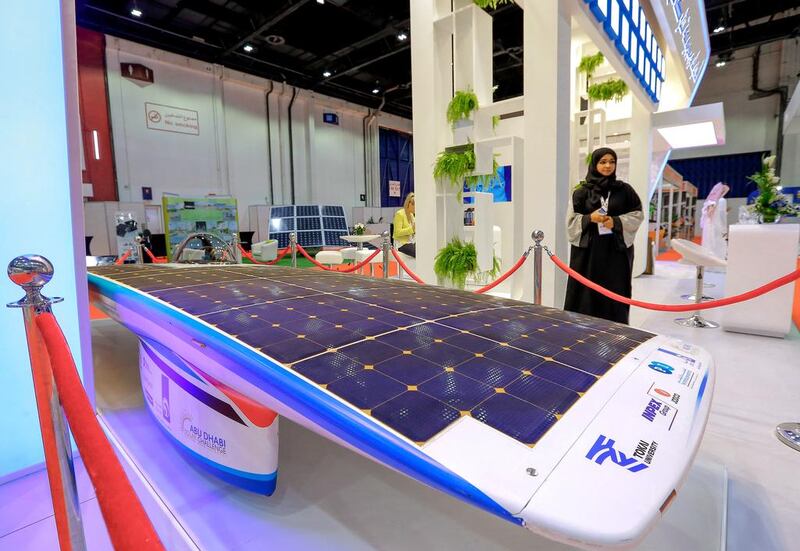Energy chiefs yesterday urged banks and policymakers to get behind the solar sector as industry leaders gathered in Dubai.
More than US$50 billion of investment is expected to funnel through the Mena region’s solar energy industry over the next five years, but regulatory framework and financing remain a hurdle.
Making solar more attractive for investors is fundamental for the growth of the sector, according to the UAE energy ministry.
Matar Al Neyadi, undersecretary at the Energy Ministry, said that improving the investment climate was a priority.
“This involves policy and regulatory support, financial support and improving efficiency of processes,” he said.
He was speaking at the Gulfsol exhibition in Dubai, which concludes tomorrow.
Ahmed Belhoul, the Masdar chief executive, said that historically international banks had been more active in the sector. "In this region, the lenders have been behind," he said. He acknowledged that may be changing with local institutions such as National Bank of Abu Dhabi (NBAD) becoming more involved in the industry.
“We want to see stability in a country, stability in the regulatory framework and stability in the legal framework,” said Oliver Ebner, the executive director of project finance at NBAD.
“At the end of the day, solar photovoltaic [PV] is predictable and both policymakers and financiers are getting more comfortable. I think there’s still much more room to invest.”
Project finance for solar power was slow to take off but lenders are becoming increasingly willing to get involved in the sector as it gains traction.
Masdar has developed a 15- megawatt solar PV project in Mauritania which met 10 per cent of the country’s energy needs.
The company is also providing solar energy to the island of Fiji, meeting 40 per cent of the country’s demands. “There’s an economic impact, [saving] a half million dollars annually in Fiji,” said Mr Belhoul.
The Dubai Electricity and Water Authority (Dewa) also said it remained committed to reducing energy demand by 30 per cent with the Mohammed bin Rashid Al Maktoum solar PV park playing an integral role.
"We plan to boost competitiveness for business development and support regional advancement of the industry," said Saeed Al Tayer, managing director and chief executive of Dewa.
lgraves@thenational.ae
Follow The National's Business section on Twitter





